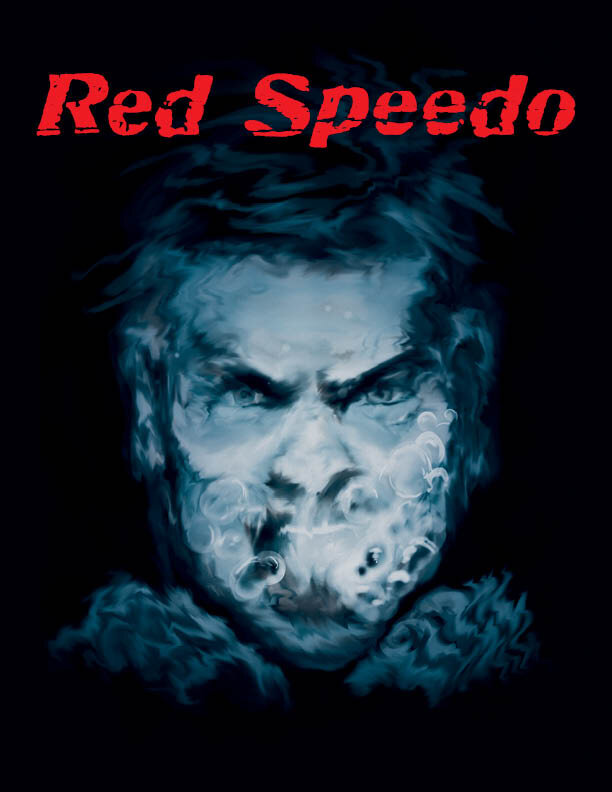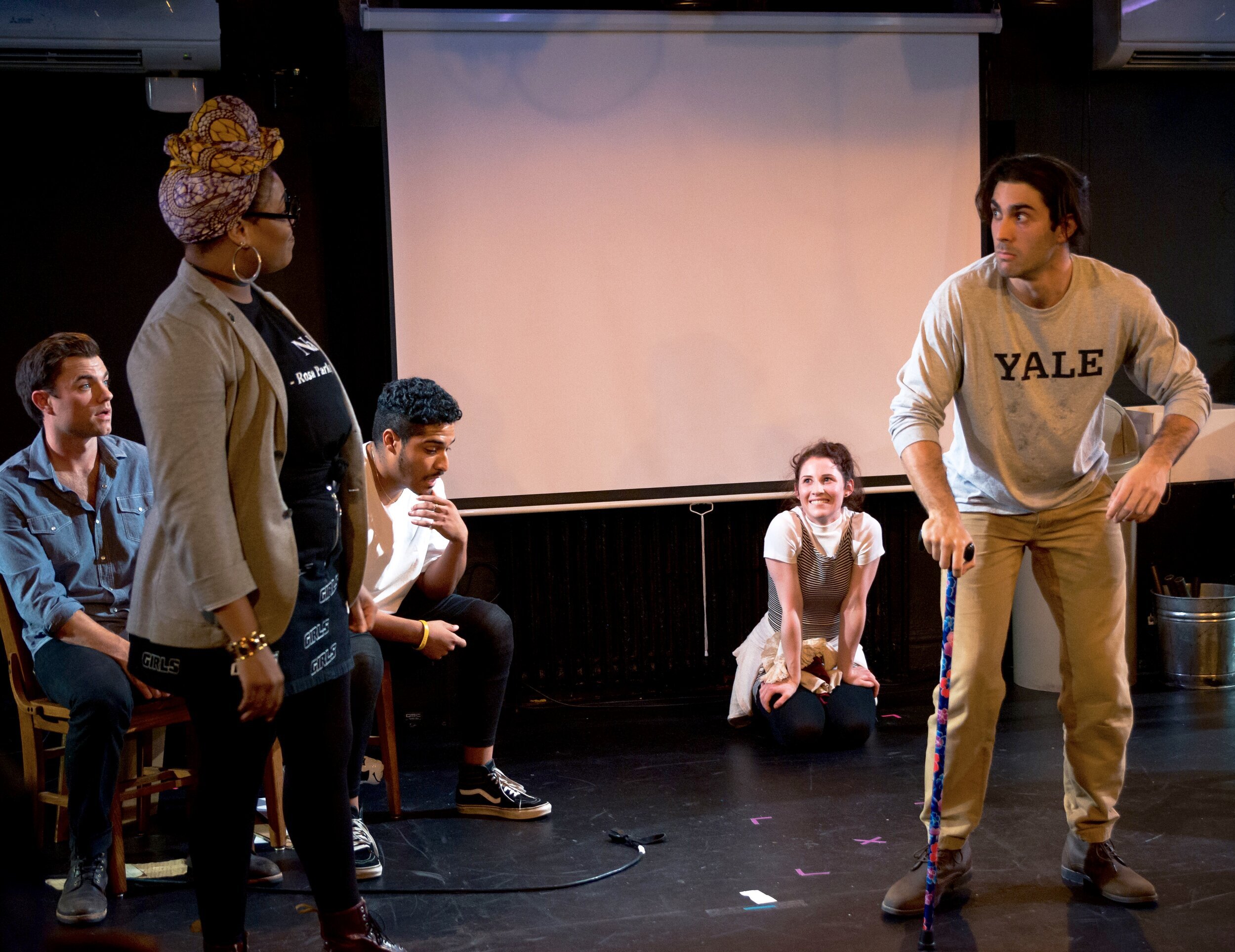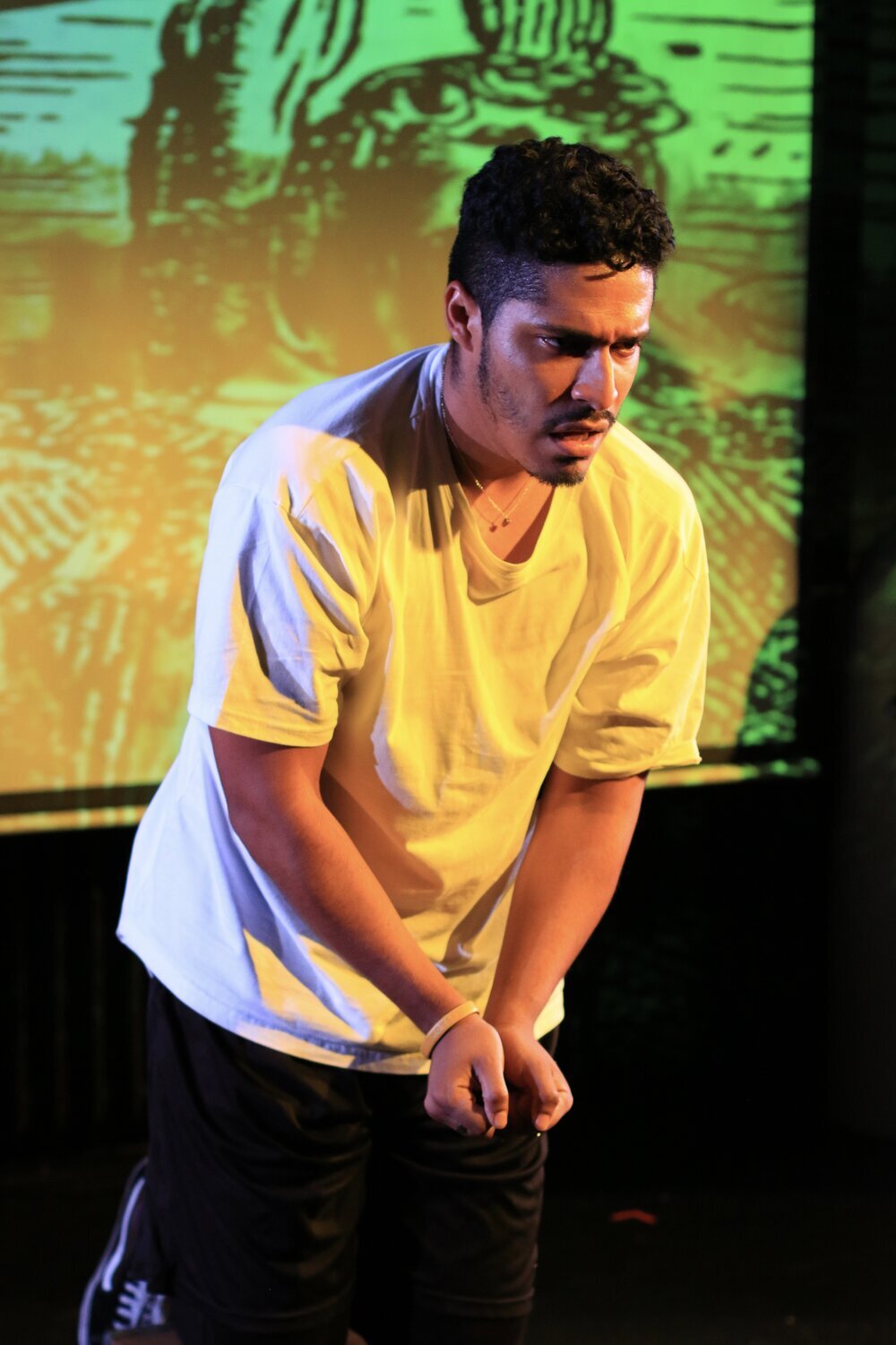Review of Red Speedo, Yale Cabaret
We’re all familiar with the notion that the driving force in any contest is winning, winning at any cost. We’re also familiar with the ethical notion that “it’s not about winning or losing but how you play the game.” The implications of those two outlooks float upon the reflective surface of Lucas Hnath’s Red Speedo, the fifth show of Yale Cabaret’s current season. Directed by Eli Pauley, a third-year actor at Yale School of Drama, and played by four students in the program, Red Speedo is an in-your-face, tour de force of contested strategies, provocation—as both defense and attack—pleas, bullying, flailing and railing, outright lies, and fights, both verbal and physical. There is the prospect of great success, of scandal, of disgrace, and even of death. And all in the insular world of championship swimming.
Ray (Adam Shaukat) in Yale Cabaret’s production of Lucas Hnath’s Red Speedo, October 24-26, 2019
The red Speedo of the title, and nothing else but a serpent tattoo and a vacant expression, is worn throughout the play by Ray (Adam Shaukat), a swimmer who has climbed the ranks to be in competition for a place on the Olympic team. It’s the day before the final tryout and his times have been good. His brother Peter (Patrick Ball), a lawyer who may be about to give up his day job to be Ray’s manager and agent, full time, is in talks with Speedo about making Ray the company’s new spokesperson. But there’s a snag. As the play opens, Peter is talking a mile a minute, hectoring Ray’s coach (Brandon E. Burton) into seeing the reason for not letting any governing body know about the cooler full of enhancement drugs Coach found in his office. The bad publicity for the club could affect Ray adversely.
And that’s only the first of many ethical problems in this fraught and taut play. And each character, as Ray says late in the play in a moment of clarity, is kinda good and kinda bad. That means we get jerked around a lot in how we respond to what is being said and why. Peter, for all his bullish lack of subtlety (vividly enacted by Ball), seems to have Ray’s best interests at heart. Until we realize how much he has riding on Ray’s success, and, indeed, how little Ray has other than a body that is treated as a prize animal, groomed to perform at its peak. And that involves substances that Ray’s former girlfriend Lydia (Nefesh Cordero Pino), a physical therapist who lost her license thanks to Peter, provided him once upon a time.
The stress of all this is made quite palpable in the Cabaret production. We can see the toll it takes on each character to be called on the tiles, so to speak, to make his or her case. Along the way we see Ray get manipulated by everyone. Cordero Pino makes Lydia seem sympathetic, someone who has gotten out of Ray’s charmed circle the hard way and wants to stay out, but her position is negotiable, we learn. Coach, in a wonderfully varied reading by Burton, can be a source of strength but he’s also desperate in his reliance on what Ray’s success means to him, not just financially but as a badge of achievement.
Eventually Ray learns, to his chagrin, that even his faith in his ability and in his drugs is misplaced. Shaukat renders Ray’s humanity best when he’s most beset by confusion and opposed views, which is often. Ray is not quite as bereft of interiority as we may at first think, and others seem to assume. He’s a cipher on his way to becoming conscious.
There’s a deep abyss at that heart of this play, a sense of how the drive to be the best can be so tragically empty but also how meaningless any effort becomes when it entails a betrayal of every trust and every standard of merit. The grippingly violent struggle between Ray and Peter at the end, choreographed with great realism by Burton, is staggering in its visceral brutality, and, it seems, necessary to the play’s central truth: winner-takes-all means destroying your opponent. To paraphrase Pyrrhus, “Another victory like that and we are ruined.”
Red Speedo
By Lucas Hnath
Directed by Eli Pauley
Producer: Will Gaines; Scenic Designer: Elsa GibsonBraden; Lighting Designer: Evan C. Anderson; Costume Designers: David Mitsch, Yunzhu Zeng; Sound Designer: Emily Duncan Wilson; Dramaturg: Callie Frosburgh; Technical Director: HaoEn Hu; Stage Manager: Julia Bates; Fight Director: Brandon E. Burton
Cast: Patrick Ball, Brandon E. Burton, Nefesh Cordero Pino, Adam Shaukat
Yale Cabaret
October 24-26, 2019






